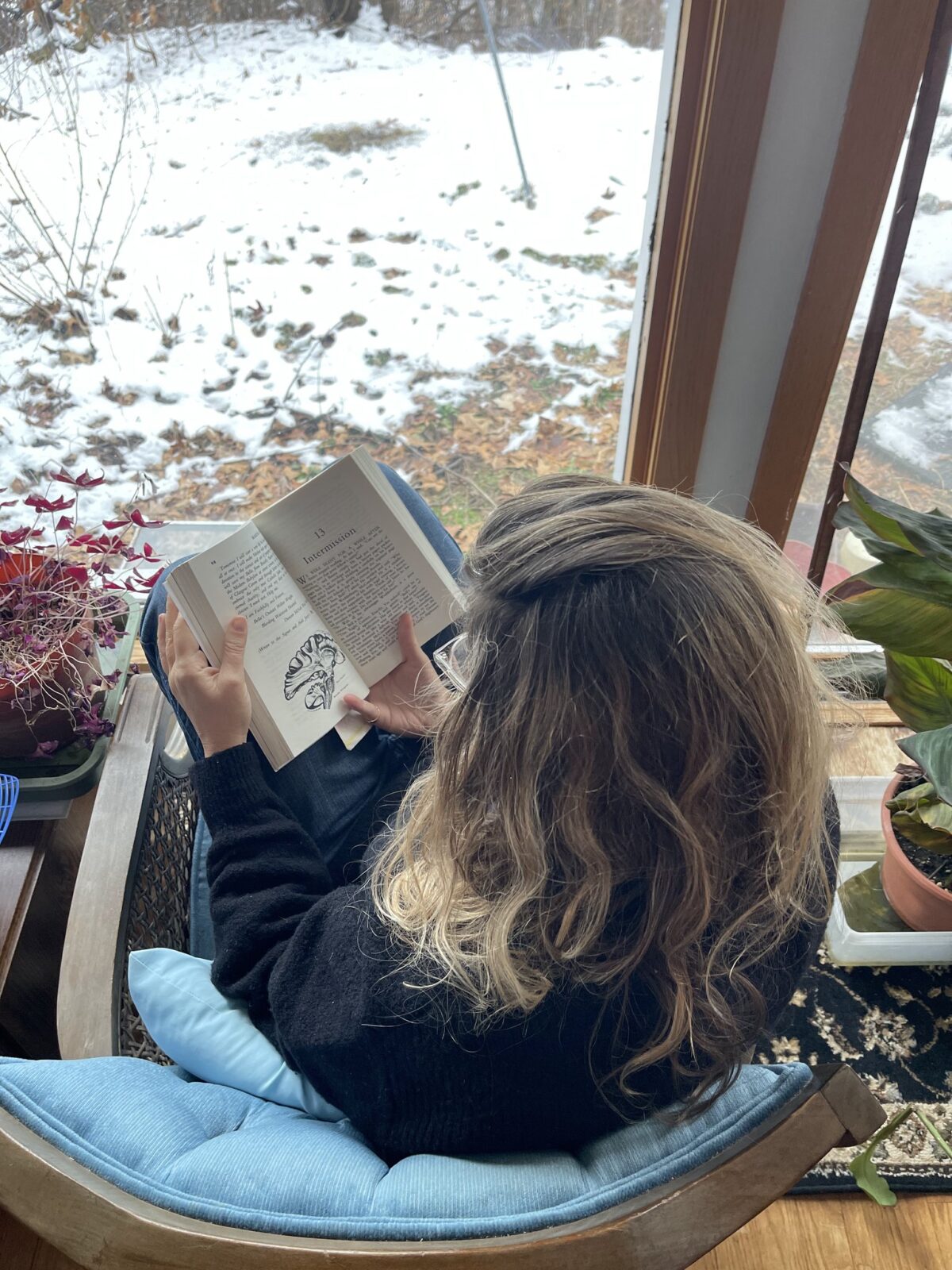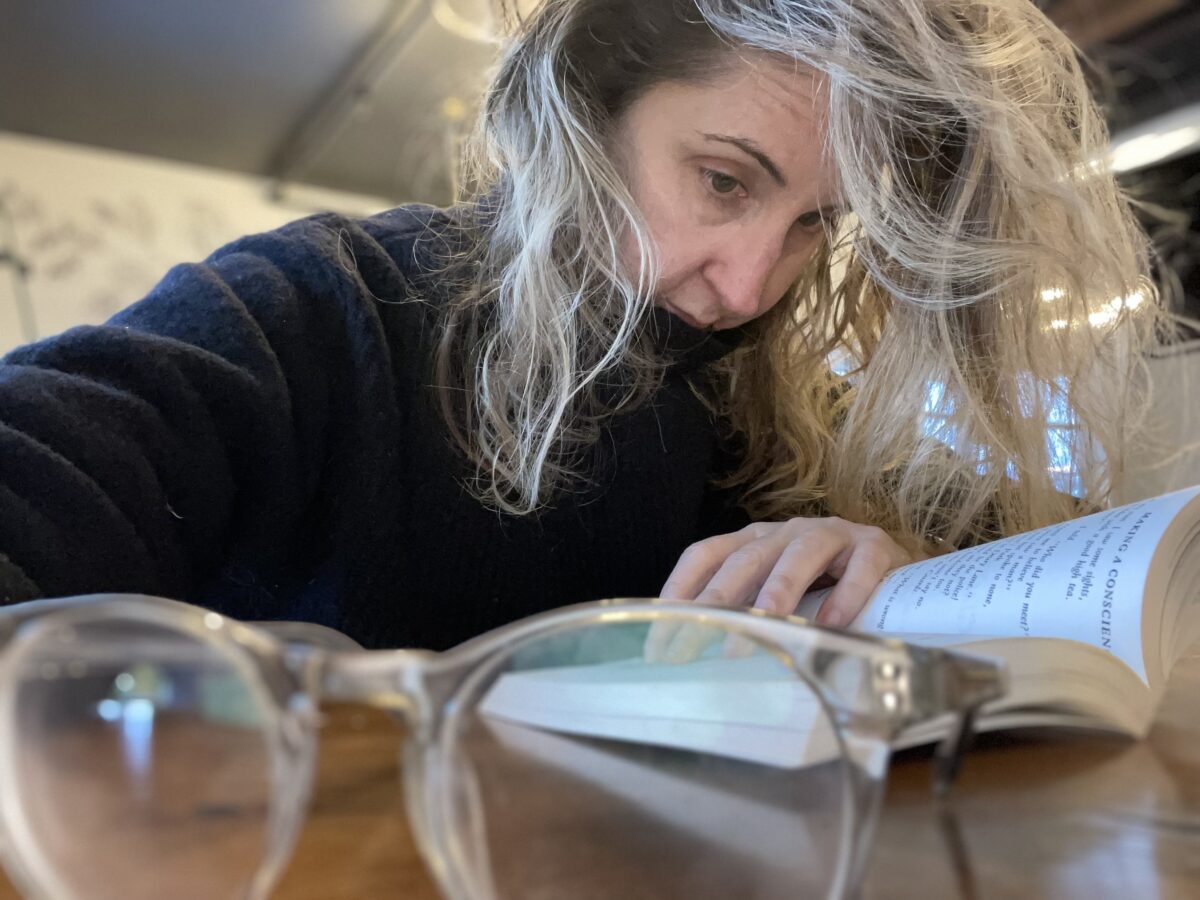This year my favourite books are pretty clear. AS MEAT LOVES SALT by Maria McCann, a wonderful, bloody love story set in the English Civil War, that made me feel weirdly proprietary about centuries-old battles (I’m looking at you siege of Basing House!). Then IN MEMORIAM by Alice Winn, which I see in all the bookshop windows and deservedly so: it’s a heart-breaker. Big props to this author for having the guts to think there was something new to say about WW1. Also BOOTH by Karen Joy Fowler, a weirdly riveting account of the family of Abraham Lincoln’s assassin; THE SECRET RIVER by Kate Grenville, about the life of a man transported to Australia; and Honourable mention to AKENFIELD by Ronald Blythe, a lengthy, factual account of rural life in nineteenth century Sussex that was sort of boring at the time but which I have thought about often since.
My real life included a lot of London and Europe, and a little of America and Southeast Asia, but my reading life was much more varied: not one but two memorable shipwrecks (both with cannibalism), shoplifting in Uganda, the decline of a Bavarian family in the 1800s, the journey of Livingstone’s heart out of the Congo, and etc. It is also interesting to see which books I maybe did not ‘love’ as much, but which still stayed with me. There were AKENFIELD, but then also a biography of the author Sybille Bedford, which introduced me to a life in which working-for-money played no part, and no one expected it to, a kind of mind-bending and liberating proposition for me. Or there was the WHITE TIGER, a novel of rural Indonesian life, which I have almost totally forgotten other than this one haunting line, from a man who lies dying: “The years had gone by so quickly, life receding in the distance like a train narrowly missed”
This year was 66 books, surprisingly about three-quarters by women. As ever, it’s been a relief from daily life and a solace, and I can’t imagine what I would do without it.
DON’T LOOK AT ME LIKE THAT by Diana Athill
GREAT GRANNY WEBSTER by Caroline Blackwood
SEVERAL SHORT SENTENCES ABOUT WRITING by Verlyn Klinkenborg
STAY TRUE by Hua Hsu
MONKEY BOY by Francisco Goldman
THE ART OF SCANDAL by Regina Black
MOSCOW STATIONS by Venedikt Yerofeev
BOOK LOVERS by Emily Henry
HAPPY PLACE by Emily Henry
BEACH READ by Emily Henry
YOU AND ME ON VACATION by Emily Henry
THE ENCHANTED APRIL by Elizabeth von Arnim
YOU, AGAIN by Kate GoldbecK
ANGEL by Elizabeth Taylor
MISS LONELYHEARTS by Nathaniel West
BUDDENBROOKS by Thomas Mann
WILLIAM’S WIFE by Gertrude Trevelyan
THE MOOR’S ACCOUNT by Laila Lalami
ALL THIS COULD BE DIFFERENT by Sarah Thankam Mathews
THE PRIVILEGES by Jonathan Dee
AN INSTANCE OF THE FINGERPOST by Iain Pears
SYBILLE BEDFORD by Selina Hastings
IN MEMORIAM by Alice Winn
THE MARCH by EL Doctorow
THE L-SHAPED ROOM by Lynne Reid Banks
KINTU by Jennifer Nansubuga Makumbi
THE RED AND THE GREEN by Iris Murdoch
AS MEAT LOVES SALT by Maria McCann
CLEOPATRA AND FRANKENSTEIN by Coco Mellors
VLADIMIR by Julia May Jonas
PINEAPPLE STREET by Jenny Jackson
IN THE CUT by Suzanne Moore
DEAR GIRLS by Ali Wong
THE STRANGER IN THE WOODS by Michael Finkel
FOREVER YOUR ROGUE by Erin Langston
BURMA BOY by Biyi Bandele
WE ARE ALL COMPLETELY BESIDES OURSELVES by Karen Joy Fowler
THE WAGER by David Grann
RAINBOW’S END by Lauren St John
QUIETLY HOSTILE by Samantha Irby
BOOTH by Karen Joy Fowler
TINKER TAILOR SOLDIER SPY by John Le Carre
PRIDE AND PREJUDICE AND ZOMBIES by Jane Austen and Seth Graham-Smith
OUT OF DARKNESS, SHINING LIGHT by Petina Gappah
THE RIVER AND THE SOURCE by Margaret A Ogala
A WREATH FOR THE ENEMY by Pamela Frankau
WHO WAS CHANGED AND WHO WAS DEAD by Barbara Comyns
AKENFIELD by Ronald Blythe
SARAH THORNHILL by Kate Greville
I’M A FAN by Sheena Patel
THE BRIDGE OF SAN LUIS REY by Thornton Wilder
THE CITY AND THE STARS by Arthur C Clarke
IT ENDS WITH US by Colleen Hoover
THE SECRET RIVER by Kate Grenville
FOR THY GREAT PAIN HAVE MERCY ON MY LITTLE PAIN by Victoria Mackenzie
THE TWO KINDS OF DECAY by Sarah Manguso
REALLY GOOD, ACTUALLY by Monica Heisey
I’M SORRY YOU FEEL THAT WAY by Rebecca Wait
TRESPASSES by Louise Kennedy
ACTS OF DESPERATION by Megan Nolan
CALEDONIA by Elspeth Barker
MAN TIGER by Eka Kurniawan
DRIVE YOUR PLOUGH OVER THE BONES OF THE DEAD by Olga Tokarczuk
RIDDLEY WALKER by Russell Hoban
NIGHTS AT THE CIRCUS by Angela Carter
FOSTER by Claire Keegan






